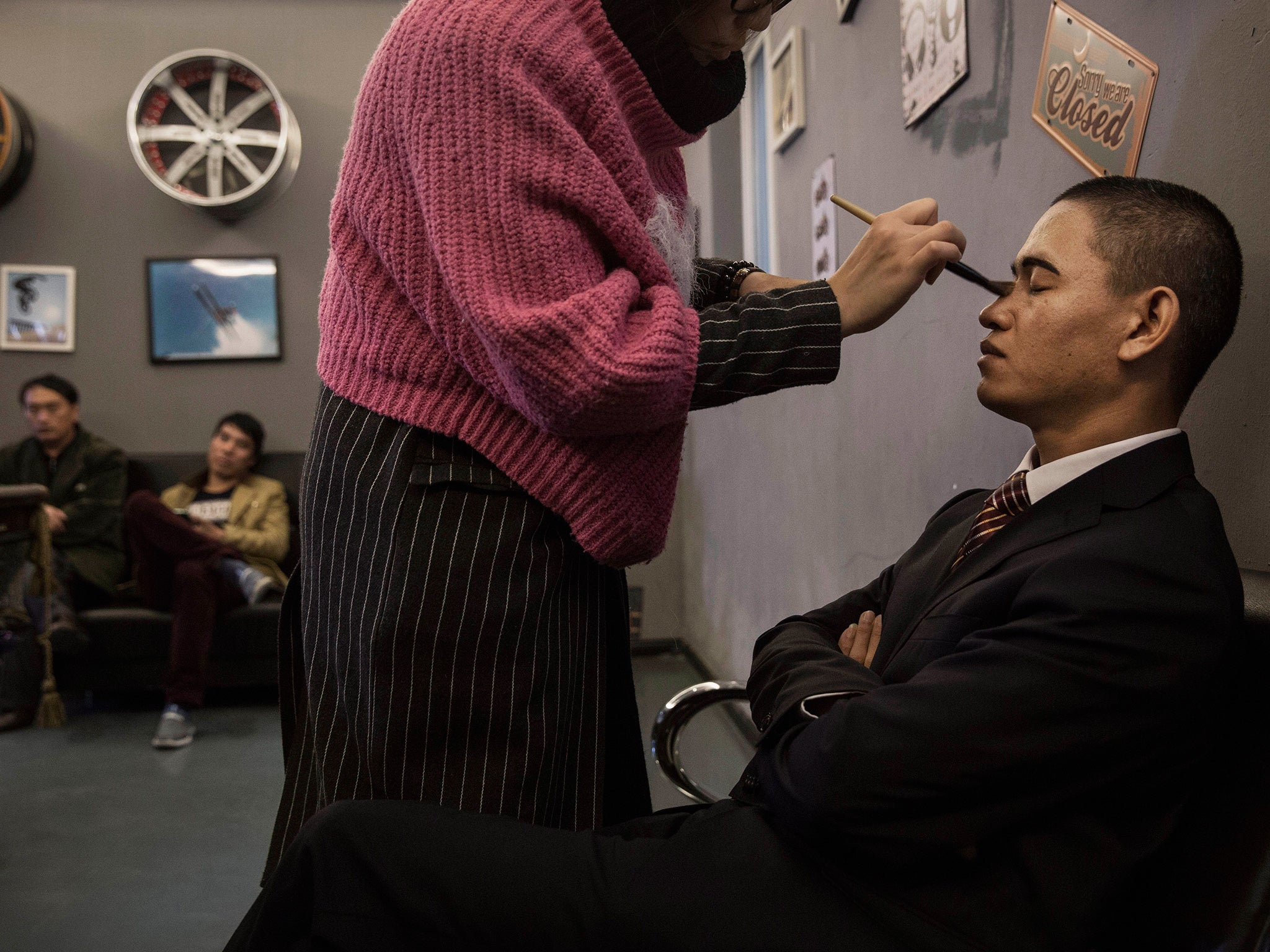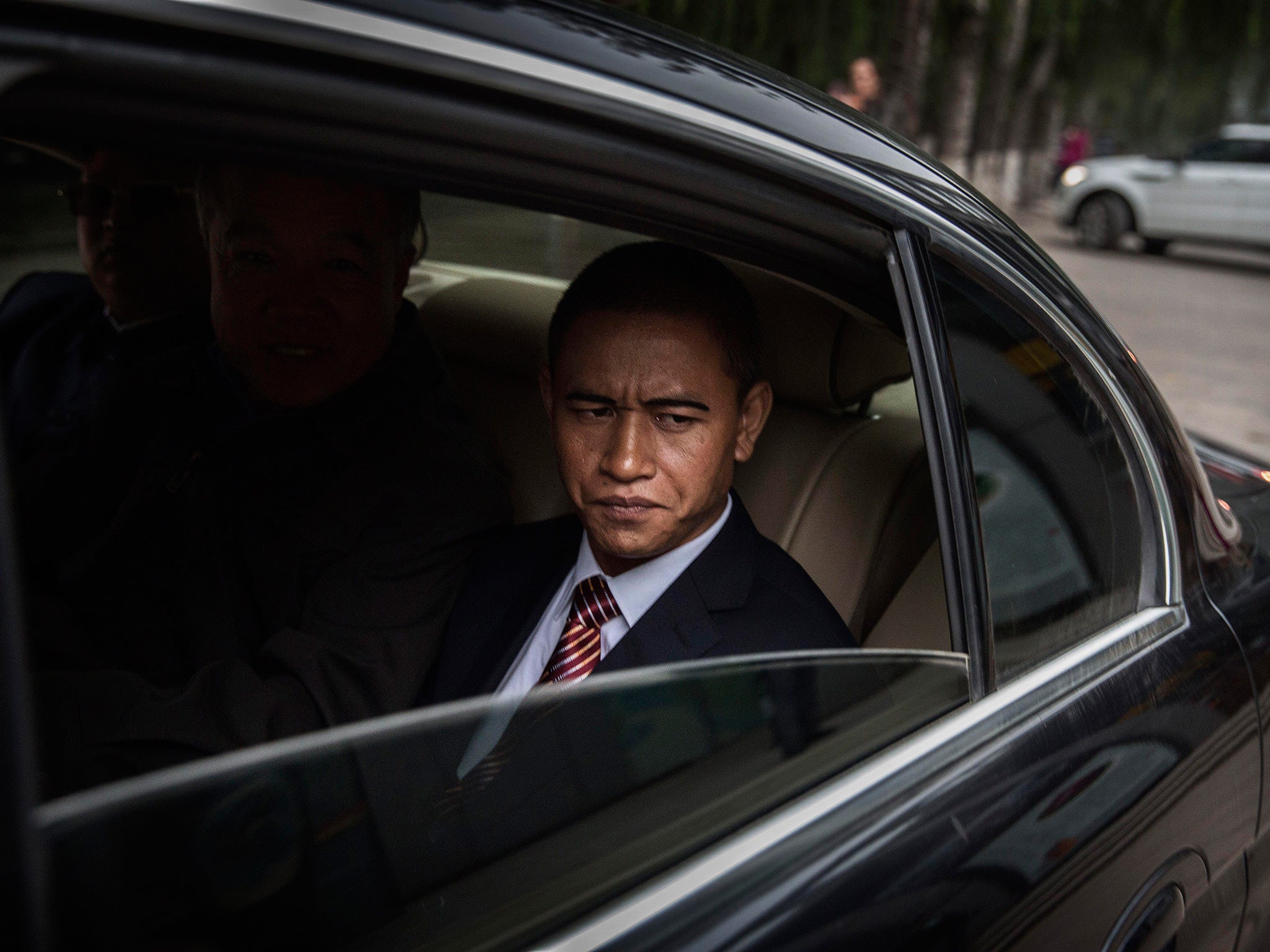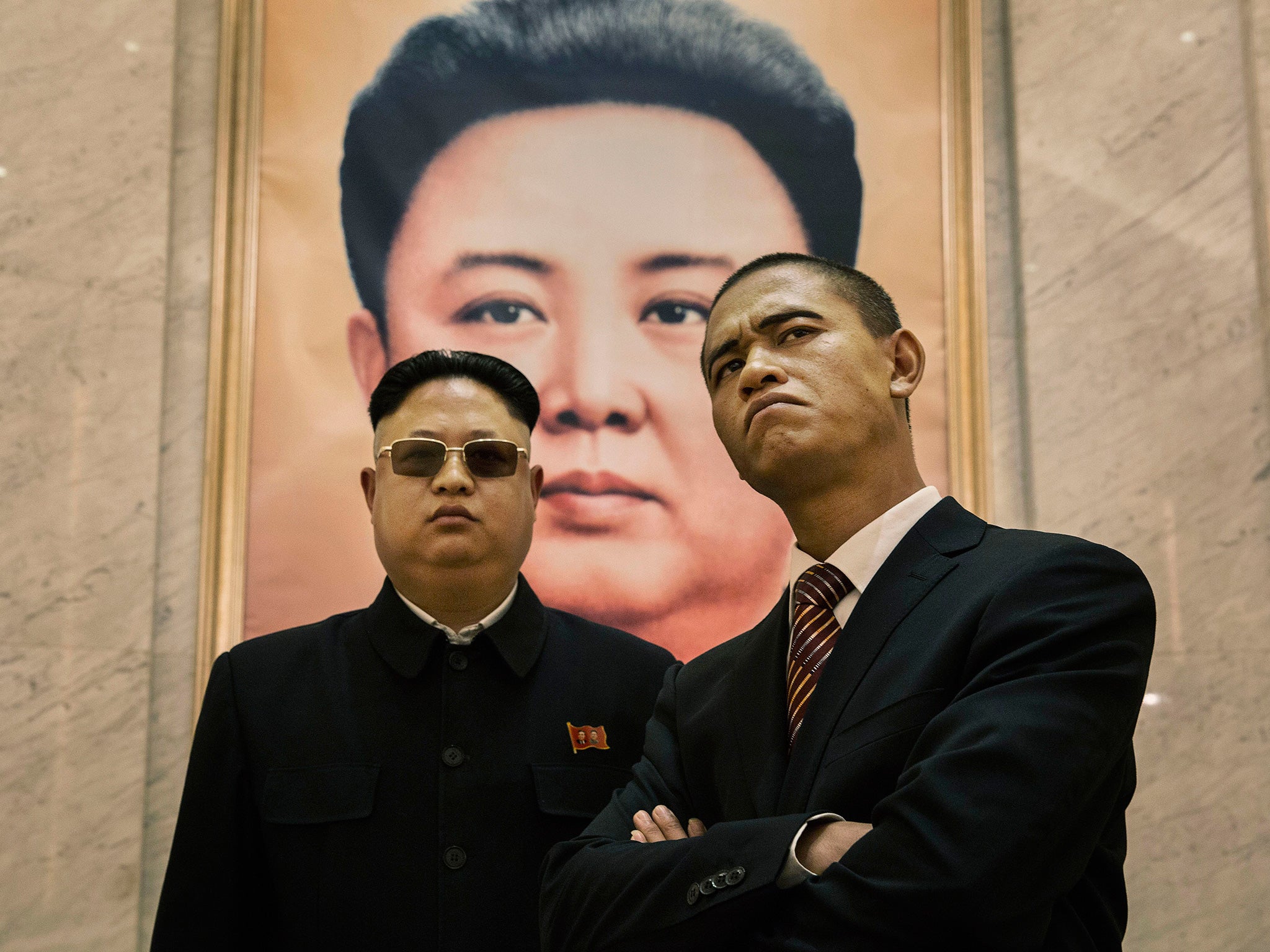Xiao Jiguo: China’s finest Obama impersonator looks the part, but speaks ‘fake English’
"I looked in the mirror and I knew it was true"

Your support helps us to tell the story
From reproductive rights to climate change to Big Tech, The Independent is on the ground when the story is developing. Whether it's investigating the financials of Elon Musk's pro-Trump PAC or producing our latest documentary, 'The A Word', which shines a light on the American women fighting for reproductive rights, we know how important it is to parse out the facts from the messaging.
At such a critical moment in US history, we need reporters on the ground. Your donation allows us to keep sending journalists to speak to both sides of the story.
The Independent is trusted by Americans across the entire political spectrum. And unlike many other quality news outlets, we choose not to lock Americans out of our reporting and analysis with paywalls. We believe quality journalism should be available to everyone, paid for by those who can afford it.
Your support makes all the difference.For Xiao Jiguo, a Chinese Obama impersonator, it’s all about the eyebrows.
The migrant-worker-turned-actor lacks the U.S. president’s stature and, with limited English, can’t easily mimic the stop-and-start cadence of his speech.
So when Xiao, 29, wants to channel his muse, he must focus on the face: A forceful furrow. Narrowed eyes. That contemplative, commanding frown.
“It’s a look you can use all the time,” Xiao said on the set of a movie Tuesday, shifting from serious to skeptical with a signature tilt of the jaw.
A beat.
More brow.

“Pause like this if you run out of things to say.”
Xiao has never met the man he calls "Brother Obama," or "Brother Ma" for short. He hears about the United States on television, and he’s seen a few Hollywood films — "The Mummy" (1999) came to mind.
But America’s 44th president has had an outsized influence on Xiao's life.
When, in 2008, a friend said he looked like Obama, Xiao, then working as a security guard, thought, “Who?” Seven years later, he spends most of his working life pretending to be the man, whether it’s for television, an ad or the opening of a shopping mall in Hefei.

Xiao likes to picture the two of them as stars in the same, vast sky. Obama fell to earth in America and grew up to be president. “Will my career in the entertainment industry also rise?”
Becoming Obama
Xiao did not get a cinematic start. He was born in 1986 to peasant parents in rural Sichuan province and was mostly raised by his grandpa in the village.
He dropped out of school at 16 and went to join his mom and dad, then toiling as cleaners in in the southern city of Guangzhou. He found work as a waiter and later as security guard at a factory making shoes amid the "Made in China" boom.
Xiao loved music of all kinds, but especially Cantonese songs by the likes of 1990s superstar Leslie Cheung. People thought they looked alike, he said.
That changed in 2008 when Barack Obama was elected and everyone noticed a different likeness. Xiao, who rather liked looking a little like Leslie Cheung, realized he looked a whole lot like someone else. "I looked in the mirror and I knew it was true," he said.
In 2012, he performed on a TV show called “Chinese Dream Show.” He sang confidently, but it was his Obama-inspired look, not his rendition of “The New Drunk Concubine,” a pop song adapted from Peking Opera, that stood out.
He moved to Beijing to make it in the movies, trying and failing to find steady work as an extra, fighting for gigs that paid 30 to 50 yuan a day -- about $5 to $8.
Unable to pay big-city rent, he joined legions of young migrants in the capital’s "rat tribe," renting a bed two floors below ground. He spent Chinese New Year of 2013 far from home, hungry.
“That was the low,” he said.
Making it as ‘Brother Ma’
If it were a movie, the next scene might be a montage: Xiao well fed and getting famous, an interlude between rural poverty and a well-lit party at the Rose Garden.
Instead, Xiao left Beijing and found work in a different film district. He hoped to play a variety of roles but quickly realized that Obama was his best hope — “It’s what makes me special,” he said.
He started marketing himself on social media, booked gigs and got some press. Business is pretty good, he said, but unpredictable.
Xiao earns more than he did as a security guard, but not so much that he’s left the family home. (Is he saving for an apartment? “Yeah, right next to the White House,” he joked.)
Xiao practices his Obama by studying pictures and videos he finds online. He’s also invented what he calls “jia-English,” or fake English, a stream of sounds that usually starts with “hello everybody” and devolves into “English-sounding” nonsense words. Crowds love it.
His new life is happier and more hopeful but also often strange.
He commutes from Sichuan to far-flung corners of the country with a single brown suitcase and his Obama outfit — dress shirt, Navy suit, tie. His hair, like Obama's, is speckled gray. Unlike Obama, he still smokes.
He spent Tuesday lingering outside a go-kart track flanked by a petting zoo, waiting to shoot a scene with a Chinese impersonator of Kim Jong Un who, for hours, refused to break character. Chinese Obama and Chinese Kim later went for dinner at a roadside fish restaurant near Beijing International Airport. With Kim still in costume, they raised a glass to North Korea, China and America.
“Do Americans eat rice?” asked Xiao.
Kim Jong Un proposed another toast.
Afterward, as they walked back to the hotel in streetlamp shadows, it was hard not to notice a certain slope of the shoulder, a cool, hands-in-pocket slouch set against out-turned ears.
The ears. Xiao may have learned to wield his eyebrows, but the ears — those ears — were surely written in the stars.
Washington Post
Join our commenting forum
Join thought-provoking conversations, follow other Independent readers and see their replies
Comments